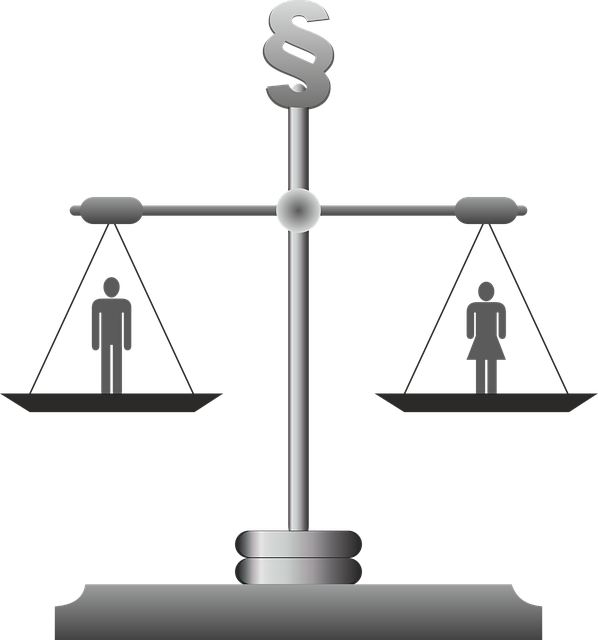Understanding and staying ahead of fraud schemes is critical for financial institutions to detect and prevent fraud, appealing Administrative Law Judge decisions and ensuring legal oversight. Data analytics and machine learning technologies play a key role in identifying patterns in large datasets, while ALJs make impartial decisions based on evidence. Preventive measures like internal controls, audits, and employee training, coupled with collaboration between bodies, are essential to staying informed about evolving fraudulent tactics and appealing ALJ rulings for economic crime clients.
Financial fraud is a persistent global challenge, with sophisticated schemes evolving over time. This article delves into the multi-faceted approach to detect and combat financial fraud, covering critical aspects like understanding common fraudulent activities, leveraging data analytics and machine learning, exploring the role of administrative law judges in resolution processes, and discussing preventive measures along with regulatory updates. By examining these elements, we aim to enhance understanding of effective strategies, including appealing Administrative Law Judge decisions, to safeguard financial systems.
- Understanding Common Fraud Schemes and Red Flags
- Data Analytics and Machine Learning in Detection
- Role of Administrative Law Judges in Resolutions
- Preventive Measures and Regulatory Updates
Understanding Common Fraud Schemes and Red Flags

Understanding common fraud schemes is a pivotal step in detecting and preventing financial fraud. Fraudsters often employ sophisticated strategies that can go undetected for long periods. From phishing scams and identity theft to complex Ponzi schemes, recognizing the patterns is key. Red flags include unusual transaction activities, unexpected changes in client behavior, or when corporate and individual clients demand quick, large-scale financial decisions with minimal documentation. An unprecedented track record of successful fraud detection can serve as a powerful tool in convincing an Administrative Law Judge (ALJ) of the validity of evidence during appeals. For his clients, this expertise ensures that every step taken is backed by a thorough understanding of both the legal and fraudulent landscape.
Data Analytics and Machine Learning in Detection

Data analytics and machine learning have revolutionized financial fraud detection, offering powerful tools to uncover intricate schemes that once eluded traditional methods. By analyzing vast datasets, these advanced technologies can identify patterns and anomalies indicative of fraudulent activities, enabling institutions to take proactive measures. Machine learning algorithms can adapt and improve over time, learning from each new data point and case, which is particularly useful in the ever-evolving landscape of fraudsters’ tactics. This capability ensures that defenses stay ahead of the curve, as models can detect subtle deviations from normal behavior across the country and in all stages of the investigative and enforcement process.
Appealing administrative law judge decisions often hinge on robust evidence, and data analytics plays a pivotal role here. By presenting well-analyzed, quantitative data, financial institutions can strengthen their cases against suspected fraudsters, potentially avoiding indictment or severe penalties. This strategic use of technology not only streamlines the detection process but also enhances the accuracy and reliability of investigations, ultimately contributing to more effective regulatory oversight.
Role of Administrative Law Judges in Resolutions

Administrative Law Judges (ALJs) play a pivotal role in financial fraud detection, serving as impartial decision-makers who review allegations and evidence presented during investigations. Their decisions are crucial, especially in cases involving complex financial transactions or disputes between parties. ALJs have the authority to interpret laws and regulations related to financial crimes, ensuring fairness and accuracy throughout all stages of the investigative and enforcement process.
Appealing Administrative Law Judge Decisions is a right available to individuals or entities facing significant penalties. In instances where a general criminal defense strategy may not be applicable, these appeals offer an avenue for reviewing the ALJ’s judgment. Legal professionals representing their clients can present additional evidence, argue legal interpretations, and seek reversal or modification of the initial decision, thereby balancing the system and safeguarding against potential injustices.
Preventive Measures and Regulatory Updates

Preventive measures play a pivotal role in financial fraud detection. Organizations must implement robust internal controls, conduct regular audits, and promote a culture of transparency and ethics. Employee training on fraud awareness is essential, equipping them to identify suspicious activities and report them promptly. Advanced technologies like artificial intelligence and machine learning can further enhance these efforts by analyzing patterns and flagging anomalies. Regulatory updates and collaborations among governing bodies are crucial in staying ahead of evolving fraudulent schemes. Staying informed about the latest legal frameworks ensures compliance and helps in navigating complex scenarios, including appealing Administrative Law Judge decisions for his clients accused of white-collar and economic crimes.
Financial fraud detection is a multifaceted process that involves recognizing common schemes, leveraging advanced analytics and machine learning, and ensuring robust administrative oversight. By understanding red flags and implementing data-driven solutions, we can strengthen defenses against fraudulent activities. The role of Administrative Law Judges in resolving disputes and their appeal processes is invaluable in maintaining fairness and integrity within the financial system. Staying informed about regulatory updates and preventive measures is crucial for both institutions and individuals to protect themselves from evolving fraud strategies.






